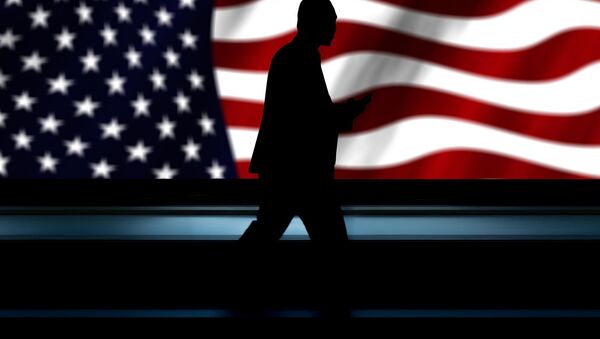President Trump attended the US-Association of South East Asian Nations (ASEAN) Summit in Manila in 2017, but has never attended a full East Asia Summit (EAS) meeting since becoming president in January 2017. Washington’s aloofness is bound to disappoint its Asian partners, who, according to media reports, are worried about China’s expanding influence.
Indian analysts, however, offerered a mixed response: Ambassador Gurjit Singh, India’s former envoy to ASEAN, Germany and Indonesia, and Ambassador K.P. Fabian, former envoy to Qatar and Italy, have commented on the development.
“The absence of the US leadership from the ASEAN and EAS summits this week is significant. The pivot to Asia seems done for,” Ambassador Singh says, indirectly reflecting what other analysts have said recently, that President Trump’s absence will raise questions about Washington’s commitment to the region, especially after his decision to withdraw from the 11-nation Trans-Pacific Partnership Trade Agreement in 2017, as well as allowing space for emerging Asian economic giants China and India to establish an impactful presence in the area more firmly.
Elaborating further, Ambassador Singh said Trump and his administration's "preoccupation with domestic issues" (read: partisan impeachment proceedings against him), has also led Washington to scale down its representation at the Bangkok summits.
Washington’s interactions with the EAS countries (the 10 ASEAN countries - Brunei, Cambodia, Indonesia, Laos, Malaysia, Myanmar, the Philippines, Singapore, Thailand and Vietnam plus Australia, China, India, Japan, New Zealand, the Republic of Korea and Russia) would also be "scant", given its ongoing bilateral trade war with China, Ambassador Gurjit Singh assumes.
He was referring to Beijing’s consistent demand to withdraw punitive tariffs imposed on some $360 billion worth of Chinese imports to the US and to the latter’s adamant insistence on imposing duties on $250 billion worth of Chinese goods and the need for reforms in Chinese state-run enterprises.
Last week, White House deputy spokesman Judd Deere said that President Trump “wants real structural changes that yield actual, verifiable, and enforceable results” that lead to fairer trade with China.
On negotiations for the formation of the Regional Comprehensive Economic Partnership (10 ASEAN countries - Brunei, Cambodia, Indonesia, Laos, Malaysia, Myanmar, the Philippines, Singapore, Thailand and Vietnam plus six Free Trade Agreement (FTA) partners - China, Japan, India, South Korea, Australia and New Zealand), Singh said:
“The RCEP discussions in any case will not include the USA”, but added that it raises the question of “whether China will be more accommodating to others to achieve the RCEP, or whether its trade war with the US will make it more aggressive in Asia.
Ambassador K.P. Fabian, on the other hand, said he did not agree with the media-reported assessment about China being able to expand its influence in Asia in an unfettered manner in the wake of the US opting to downgrade its presence at key summits in the region.
He, however, did accept that impeachment proceedings against President Trump have prevented him from attending the meetings in Bangkok.
“I do not agree with the assessment. President Trump is facing thickening clouds of impeachment, which are preventing him from attending such a meeting in Bangkok,” Ambassador Fabian suggests.
As to whether India needs to be concerned about the US deciding to have itself represented at the Bangkok summits only by its Commerce Secretary Wilbur Ross (East Asian Summit and US-ASEAN Summit, and the Indo-Pacific Business Forum) and National Security Adviser Robert O’Brien (Special Envoy at the East Asian Summit and U.S.-ASEAN Summit), Ambassador Fabian said: “No need for India to worry”.
The US delegation will be significantly outranked by other regional players, including Japan, India and China, Reuters reported last week.
It is another matter that President Trump’s predecessor, Barack Obama, attended every US-ASEAN and East Asia summit during his presidency except the one held in 2013 because he was preoccupied with a government lock-down, caused by differences with the then Republican-dominated US Congress.
Trump's plans to attend the Asia Pacific Economic Cooperation (APEC) in Chile’s capital city of Santiago next week was also called into question after the country’s President Sebastian Pinera opted to cancel the event due to civil unrest triggered by the authorities' decision to increase public transport fares.
Trump was hoping to meet Chinese President Xi Jinping on the sidelines of the APEC to sign their agreement on the first part of their deal to resolve their prolonged and damaging trade war.


